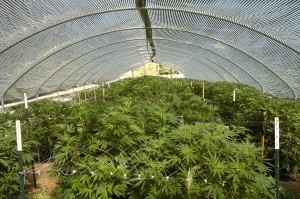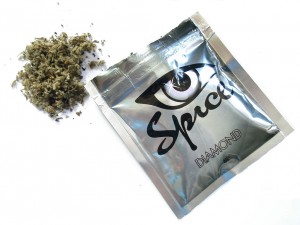Why Spice is NOT marijuana
A few days ago I removed a news story about “Spice” (a dubious over-the-counter drug) from Cannabis Chronicles after it was automatically pulled from our Associated Press wire service feed. And here’s why:
The story talked about “synthetic marijuana” leading to a growing number of hospital visits in the United States and about the dangers of the drug.
Let’s be clear here – this stuff is NOT marijuana, has no marijuana in it and is much less safe to use. But, at the same time, many of the folks that oppose legalization use the name “synthetic marijuana” instead of “Spice” as a way to distort statistics.
Calling it “synthetic marijuana” can be a way for those opposed to legalization to pull in all the hospital statistics and deaths associated with “Spice” and make them appear as though they are caused by legal marijuana.
Have a look at this quote from a similar “Spice” story in The Guardian, from a prominent medical expert:
“This is the worst outbreak of drug abuse that I’ve lived through,” said Dr Steven Marcus, executive director of the New Jersey Poison Information and Education System at the New Jersey Medical School at Rutgers University. “It’s almost as if someone had made a witches’ brew of these cannabinoids. This is not just powerful marijuana. This is really dangerous stuff that has effects that can be life-threatening.” (emphasis mine)
“Spice” is not “powerful marijuana” at all. It’s something quite different, and it can, indeed, indeed be life-threatening.
But it’s that “synthetic marijuana” label that allows some people to distort the issue and make it easy for the public to confuse it with cannabis.
That’s not to say there haven’t been issues with people taking too much of an edible marijuana product and hallucinating or making poor or dangerous decisions (which has led Colorado and Washington to crack down on portion control). But nobody has ever died of a physical overdose of marijuana. The nature of marijuana and how it interacts with your system makes it pretty much impossible to have a lethal overdose, actually, although taking too much of it can sometimes lead to a bad experience.
“Spice,” on the other hand, has killed people and has led to countless hospitalizations across the country.
So what is “Spice?” It’s a mix of herbs, like Dwarf skullcap, water lily, beach bean, blue lotus and rose hips, sprayed with a mix of poorly studied chemicals that bind to some of the same receptors in the brain as cannabis.
These products (called “Spice,” “K-2,” “Blaze,” “Skunk,” “fake weed,” “Yucatan Fire,” “Moon Rocks” and “JWH-018,” among countless other names) skirt drug laws by changing up the chemical soup they spray on the herbs, outpacing the government’s ability to ban those chemicals.
So tell me, would you smoke a bunch of tree bark and roots sprayed with an array of unpronounceable or cryptically-named chemicals (HU-210, Cannabicyclohexanol, JWH-073, JWH-018 and AM-2201 among them) that could easily land you in the hospital?
I certainly wouldn’t.
If anything this stuff is the antithesis of marijuana.
Pretty much all the folks I’ve met in Washington’s marijuana industry – as well as the consumers that use the products – are highly concerned about health. They want to produce marijuana that’s as close to organic as possible, they try not to use pesticides (although some growers do use state-approved ones), they want the plant material to be as pure as possible.

To many, marijuana is medicine. On the medicinal side people use it to relieve pain, seizures, PTSD symptoms and a host of other ailments. Patients don’t want strange chemicals on their marijuana that could make their conditions worse. And that attitude has, for the most part, transferred to those in the recreational market as well.
That’s much different than the chemical soup that is “Spice.”
It would be nice if everybody would stop calling this stuff “synthetic marijuana” – although I realize that’s unlikely to happen.
But at least we can remember to take news stories about “Spice” with the proverbial grain of salt.
That’s why I removed the story from the Cannabis Chronicles news feed – because Cannabis Chronicles covers marijuana and marijuana-related issues – and “Spice” isn’t part of that.
(That said, if the news feed pulls in another story about “synthetic marijuana” please bear with me. The feed is automated so I have to delete them after they appear).
There’s my two cents for the day.
Cheers!
-SueVo (sue.vorenberg@columbian.com)

